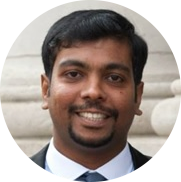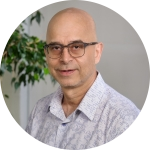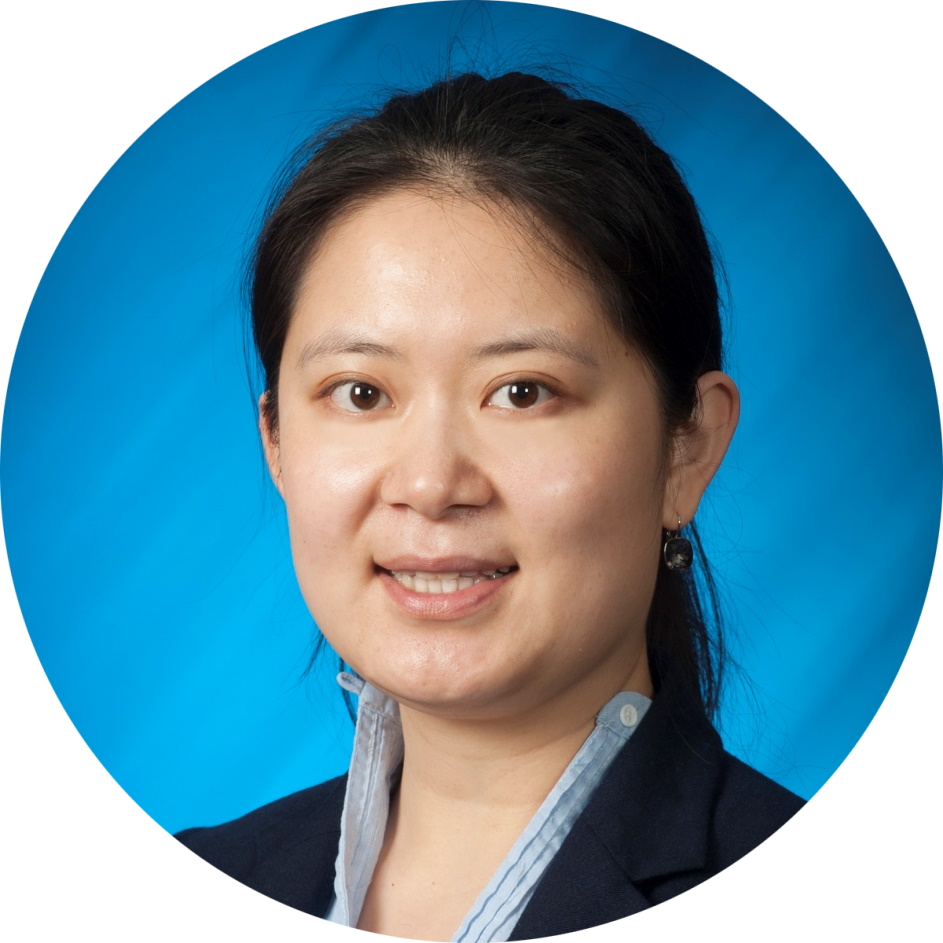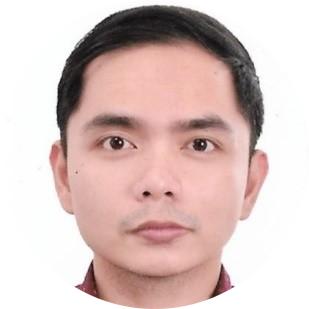Prof. Kelum A.A. Gamage
Fellow of the Institution of Engineering and Technology
(FIET)
Fellow of the Royal Society of Arts (FRSA)
Principal
Fellow of the Higher Education Academy (PFHEA)
University of Glasgow, UK

Speech Title: Transnational
Education Sector: Emerging Opportunities, Challenges and Trends
Abstract: Demand for transnational education
programmes has remained relatively steady over the years, but with
the current pandemic circumstances, significant changes in student
numbers can be seen in the transnational education sector. This
paper explores the past, present and future direction of the
transnational education sector and investigates and identifies the
impacts of the pandemic on the transnational education sector. We
identify the challenges of a post-pandemic era, which has resulted
in long-term changes to the global higher education landscape.
Transnational Education engagement can benefit students, overseas
partners, and UK universities, and it is critical to investigate
trends and challenges to ensure that transnational academic program
partners can adapt to the environment and reap the benefits. It
highlights students pursuing a transnational education programme as
a more sustainable approach to obtaining an international degree
compared to leaving their home country for a period of higher
education abroad.
Bio: Prof. Kelum Gamage (BSc, PhD, PgCAP, CEng,
PFHEA, FIET, FRSA, SMIEEE) is a Full Professor in the James Watt
School of Engineering at the University of Glasgow and a winner of
the University of Glasgow Teaching Excellence Individual Award
(2020/21). He is the Learning & Teaching Enhancement Officer of the
College of Science and Engineering and the Co-Director of the Centre
for Educational Development and Innovation. He is an academic
accreditor and Professional Registration Advisor (PRA) of the IET.
Prof. Gamage is the Scotland member of the Advisory Group for the
Engineering Subject Benchmark Statement (lead by the Quality
Assurance Agency (QAA) for Higher Education) and also an assessor of
the Designated Quality Body in England (DQB). He is the lead editor
of "The Wiley Handbook of Sustainability in Higher Education
Learning and Teaching" (ISBN: 978-1-119-85283-4). Prof. Gamage is
the Editor-in-Chief for the STEM Education Section of the Education
Sciences Journal (Publisher: MDPI, Switzerland, ISSN 2227-7102).
Prof. Gamage has gained the highest level of professional
recognition for teaching and supporting learning in higher
education, becoming a Principal Fellow of the Higher Education
Academy (PFHEA). He is also a Chartered Engineer (CEng) of the
Engineering Council (UK), a Fellow of the Institution of Engineering
and Technology (FIET), a Fellow of the Royal Society of Arts (FRSA)
and a Senior Member of the Institute of Electrical and Electronics
Engineers (SMIEEE).
Prof. Ravinder Koul
Fulbright Senior Specialist
The Pennsylvania State University, USA

Speech Title: Gendered Patterns in Engineering Identities,
Participation, and Persistence in Engineering Fields
Abstract: In 2022, the percentages of women
enrolled in undergraduate engineering degree programs in the top 11
universities in Thailand were 25% for computer engineering, 22% for
electrical engineering, 19% for civil engineering, and 13% for
mechanical engineering (Thai Office of the Higher Education
Commission, 2022). This data is indicative of the
underrepresentation of women in engineering programs in universities
across the world and the gender gap that continues to persist in
some of the STEM fields. There have been education policy and
research efforts undertaken globally to enhance gender equity in
engineering education (Ong et al., 2020).
This paper begins with an overview of research literature from
different motivational perspectives on gender differences in
engineering identities, participation, and persistence in
engineering fields. The paper presents results of a comparative
analysis of gender differences in academic identities and
occupational interests and goals of public high school students in
central Thailand and undergraduate students enrolled in engineering
programs at a public institution of higher education in the same
geographical region. The paper concludes with proposing theoretical
and practical implications of findings for gender-based equity in
engineering fields.
Bio: Dr. Koul is a Professor of Education (Science
Education) at The Pennsylvania State University, USA. Dr. Koul’s
research and teaching have developed with three learner-centered
themes: 1) Cultural aspects in motivation and learning, 2) Mastery
goals and motivation for teaching and learning, and 3) Equity issues
in teaching and learning. His recent research has focused on gender
equity in the participation and persistence of students in STEM
fields across national cultures and cultural factors that promote or
hinder curriculum reform efforts and the effectiveness of
professional development for teachers. Dr. Koul was a recipient of
Fulbright Senior Specialist Awards in 2010 and 2013 and has been
recognized by Pennsylvania State University for his international
work. Dr. Koul is the Lead Faculty for the STEM education graduate
program offered through Penn State’s World Campus.
Prof. Shuo Zhao
Fellow of New York Academy of Sciences
Communication University of China, China

Speech Title: On Digital Education
of European Universities in Post-pandemic Era
Abstract: After COVID-19 epidemic in 2020, online
education has been basically started in all education stages around
the world. From a global perspective, the model of using digital
media for education and teaching has become an irreversible
education trend. The digitization degree of British universities is
in the leading position in the world. Taking the digital teaching
practice of three British universities as case study the research
analyzes the digital teaching achievements of British universities
in post-pandemic era and compares current situation of digital
education in China and UK, so as to provide reference and
enlightenment for applying digital teaching in more universities of
the world.
Bio: Dr. Shuo Zhao is Professor in Communication
University of China (CUC) and Fellow of New York Academy of Sciences
while he is guest professor/PhD Superviser in University of
Malaya(UM), Krirk University of Thailand and visiting professor in
Universidad Nacional de Rosario(UNR) in Argentina.
He received his two Ph.D in Shanghai International Studies
University and Northwestern Polytechnical University. He did his
Postdoctoral Research both in Fudan University, Shanghai of China
and Universitat of Barcelona, Barcelona of Spain. He is majored in
higher education, digital education and applied linguistics.
Professor Shuo Zhao ever presides over National Social Science Fund
in China, China Postdoctoral Science Fund, Humanities and Social
Science Fund of Chinese Ministry of Education, National Education
Science Program. He publishes more than 100 papers and articles
approximately.
He is awarded as International Humanity Scholar by American Common
Ground Publishing and CEU of Spain in 2014. In addition he is
awarded as Emerging Humanity Scholar by American Common Ground
Publishing and Imperial College London in 2017. Recently he is
awarded as Emerging Scholar by Universidad Complutense of Spain in
2021, Emerging Scholar by University of Aegean of Greece in 2022,
Emerging Scholar by University of Sorbonne of France in 2023.
Assoc. Prof. Yang Chen
Harbin Institute of Technology (Shenzhen), China

Bio: Yang Chen is currently an associate professor in the college of humanity and social sciences of Harbin Institute of Technology (Shenzhen), China. She received her bachelor’s degree in mass communication from Communication University of China, master’s degree in digital media from Harbin Institute of Technology, China, and doctoral degree in computer graphics technology with a concentration in human-computer interaction from Purdue University, USA. Her research interests include social media, user experience, environmental communication, and educational gamification. As principal investigator, she has undertaken funded research projects on gamified pro-environmental communication, gamification in second language acquisition, and big data and education resources, which were funded by national/provincial social science foundations. She has publications in international journals including International Journal of Human-Computer Interaction, sustainability, and International Journal of Language, Literature and Linguistics. She also published in international conferences such as ICBDE, ICESS, ICIET, WCEEE, and ELEARN. In addition, she serves as a reviewer for several prestigious international journals (such as Information, Communication & Society, Information Processing and Management, Social Media and Society, Behaviour & information Technology, and Interacting with Computers) and international conferences in the fields of social media, technology, and education.
Dr. Shahzad Ashraf
NFC Institute of Engineering and Technology, Pakistan

Bio: SHAHZAD ASHRAF received B.E. degree in Computer Systems Engineering, and M.E. in Communication System and Networks from Mehran Engineering & Technology University, Jamshoro Pakistan in 2004, and 2014 respectively. He secured Ph.D degree from Hohai University Changzhou China in 2020. At present, he associates with NFC Institute of Engineering and Technology Multan, Pakistan. His area of interest includes Wireless sensor communication, Underwater routing, Computer graphics and architecture, Computer Networks, Grid and distributed computing and Computer hardware. He is an active reviewer and member of technical committee of more than 70 renowned international journals and conference proceedings including IEEE and ACM. He is associate editor of more than five renowned international journals.
Dr. Dan Michael A. Cortez
University of the City of Manila, Philippines

Speech Title: An Enhancement of
SMOTE Algorithm Using Heron- Centroid Approach and Noise Mitigation
Abstract: The performance of any classification
algorithm is determined not only by the quality of the classifier
itself, but also the quality of data to be used. Most data are
imbalanced, meaning the different class instances have varying
ratios which poses a challenge for classification performance.
Synthetic Minority Oversampling Technique (SMOTE) algorithm is an
oversampling technique that deals with data imbalance by generating
synthetic data instances by linearly interpolating between the
minority class instances. However, the SMOTE Algorithm has certain
limitations as it has a potential to overfit the classification
model. The proposed method utilizes a triangle centroid method for
the synthesis of new minority class instances. Heron’s formula will
also be used for the proposed method to be able to determine the
distribution density of the data instances, as well as use a
triangular noise mitigation technique to reduce the propagation of
noisy data instances. Results of simulation on publicly available
medical datasets show that Heron-Centroid SMOTE improved SMOTE
across all performance metrics and beating both ‘Imbalanced’ tests
and SMOTE on most datasets, with mean F- score of 0.5792, and an
average G-mean of 0.6398.
Bio: DR. DAN MICHAEL A. CORTEZ is currently the
Assistant Vice President for University Priorities at PAMANTASAN NG
LUNGSOD NG MAYNILA. He is also the Chairperson of the Computer
Science Department. He has ten (10) years of teaching experience.
He graduated with the degree of Bachelor of Science in Information
Technology from the Pamantasan ng Lungsod ng Maynila. He also
obtained his Master of Science in Information and Communications
Technology degree from the same university. He finished his Doctor
in Information Technology from Technological Institute of the
Philippines-Quezon City Campus.
He is a member of the Philippine Society of Information Technology
Educators (PSITE-NCR) and the Computing Society of the Philippines.
He is also an author of various books and has already published his
research in the field of Information Technology, both locally and
internationally. His research interest is more on cryptography and
Data Mining.